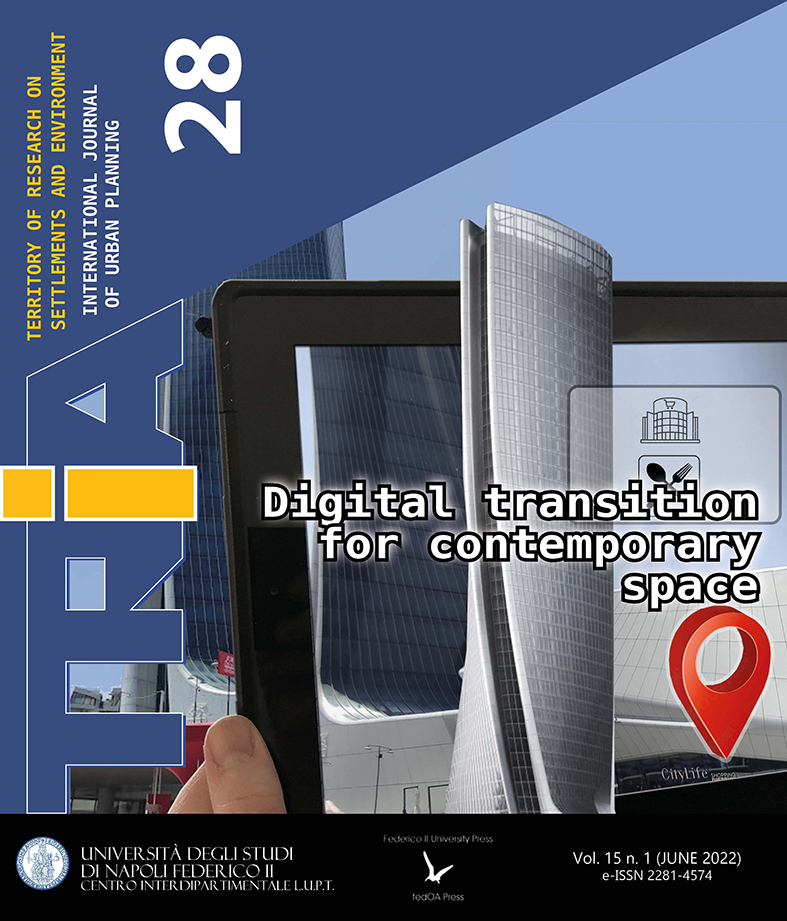Active citizenship, ecological networks and digital commons: collaborative technologies and processes for mapping and bottom-up design of a “green belt” in the eastern suburbs of Rome
DOI:
https://doi.org/10.6093/2281-4574/9253Abstract
The paper describes an action-research that is part of the activities of LabSU - Laboratory of Urban Studies “Territories of Living” (DICEA) - in the Roman suburbs. It consists in the experimentation of innovative methodologies of collaborative production of local knowledge that provide an intense cooperation between formal and informal social networks, institutions and the world of research, as well as the construction of environments and digital tools that encourage collaboration, knowledge sharing and co-design within these networks, effectively supporting their action. Interpreting ICT as a decisive factor of empowerment of local communities and a tool for redefining the relationships between settled communities and local resources, the research is conducting in collaboration with a network of active citizenship of East Rome (Free Assembly of Centocelle), and with the support of the Paolo Bulgari Foundation. The mapping was initiated in the East quadrant of Rome and involved a large number of formal and informal local actors, focusing on the theme of green areas of the quadrant for the co-planning of an ecological network called “Green Crown of Centocelle”. In addition to bringing out the latent resources of the area (heritage dimension and social capital), the process aims to detect and promote widespread projects that, starting from those resources, promote new models of inclusive and sustainable local development.
Downloads
Downloads
Published
Issue
Section
License
Gli autori che pubblicano su questa rivista accettano le seguenti condizioni:- Gli autori mantengono i diritti sulla loro opera e cedono alla rivista il diritto di prima pubblicazione dell'opera, contemporaneamente licenziata sotto una Licenza Creative Commons - Attribuzione che permette ad altri di condividere l'opera indicando la paternità intellettuale e la prima pubblicazione su questa rivista.
- Gli autori possono aderire ad altri accordi di licenza non esclusiva per la distribuzione della versione dell'opera pubblicata (es. depositarla in un archivio istituzionale o pubblicarla in una monografia), a patto di indicare che la prima pubblicazione è avvenuta su questa rivista.
- Gli autori possono diffondere la loro opera online (es. in repository istituzionali o nel loro sito web) prima e durante il processo di submission, poiché può portare a scambi produttivi e aumentare le citazioni dell'opera pubblicata (Vedi The Effect of Open Access).


